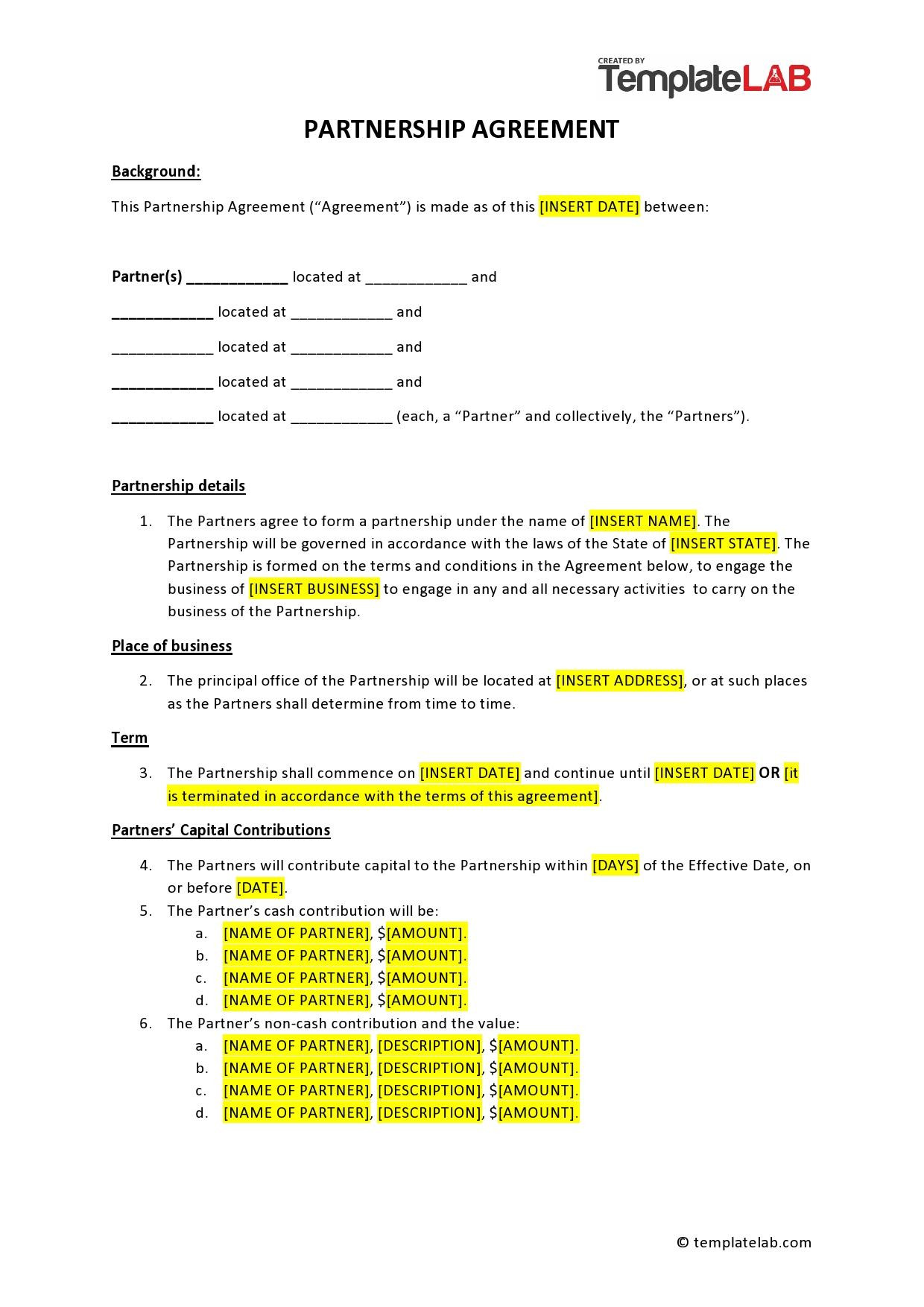In the world of business, agreements are essential for ensuring that all parties involved are on the same page. Whether it’s a partnership agreement, a vendor agreement, or a client agreement, having a written document outlining the terms and conditions can help avoid misunderstandings and disputes down the line.
What is a Business Agreement?
A business agreement is a legally binding contract between two or more parties that outlines the terms and conditions of their relationship. These agreements can cover a wide range of topics, including the scope of work, payment terms, confidentiality clauses, dispute resolution procedures, and more. By putting these details in writing and having all parties sign the agreement, everyone involved can have a clear understanding of their roles and responsibilities.
The Purpose of Business Agreements

Image Source: examples.com
The main purpose of a business agreement is to protect the interests of all parties involved in a business relationship. By clearly outlining the terms and conditions of the agreement, each party knows what is expected of them and what they can expect in return. This can help prevent misunderstandings, disputes, and legal issues that can arise when expectations are not clearly defined.
Why Business Agreements are Important
Business agreements are important for several reasons. They provide a written record of the terms and conditions of a business relationship, which can be referred back to in case of any disagreements. They also help establish trust between parties by clearly outlining expectations and obligations. Additionally, having a written agreement in place can help protect all parties in the event of a legal dispute.
How to Create a Business Agreement

Image Source: potelawfirm.com
Creating a business agreement involves several key steps. First, you need to clearly define the scope of work or the services to be provided. Next, outline the payment terms, including when payments are due and how much will be paid. Include any necessary confidentiality or non-disclosure clauses to protect sensitive information. Finally, include a dispute resolution clause outlining how any disagreements will be resolved.
1. Define the scope of work
When creating a business agreement, it’s important to clearly define the scope of work or the services to be provided. This includes detailing the deliverables, timelines, and any specific requirements.
2. Outline payment terms

Image Source: templatelab.com
Clearly outline the payment terms in the agreement, including how much will be paid, when payments are due, and any penalties for late payment. This will help avoid any misunderstandings about payment expectations.
3. Include confidentiality clauses
If the agreement involves sharing sensitive information, include confidentiality clauses to protect that information from being shared with third parties. This can help protect your business’s intellectual property and trade secrets.
4. Add a dispute resolution clause

Image Source: legaltemplates.net
Include a dispute resolution clause in the agreement that outlines how any disagreements will be resolved. This can help prevent disputes from escalating into costly legal battles.
5. Have all parties sign the agreement
Once the agreement has been drafted, make sure all parties involved sign the document. This will make the agreement legally binding and ensure that all parties are committed to upholding their end of the deal.
6. Review and update as needed

Image Source: cocosign.com
Periodically review the business agreement to ensure that it still accurately reflects the current relationship between the parties. Update the agreement as needed to account for any changes in the business relationship.
7. Seek legal advice if necessary
If you’re unsure about any aspect of the business agreement, don’t hesitate to seek legal advice. A lawyer can help ensure that the agreement is legally sound and that your interests are protected.
8. Communicate openly and honestly

Image Source: website-files.com
Throughout the duration of the business agreement, it’s important to communicate openly and honestly with the other parties involved. This can help address any issues before they escalate and strengthen the business relationship.
Tips for Successful Business Agreements
Be specific and detailed. Include as much detail as possible in the agreement to avoid any misunderstandings.
Ensure all parties understand and agree. Make sure all parties involved fully understand the terms of the agreement and agree to them before signing.
Get everything in writing. Put all agreements in writing to avoid any confusion or disputes in the future.
Review regularly. Periodically review the agreement and make any necessary updates to ensure it remains relevant.
Seek legal advice. If you’re unsure about any aspect of the agreement, don’t hesitate to seek legal advice to protect your interests.
Communicate openly. Maintain open and honest communication with the other parties involved to address any issues that may arise.

Image Source: templatelab.com
In conclusion, business agreements are crucial for establishing clear expectations and protecting the interests of all parties involved in a business relationship. By following these tips and guidelines, you can create successful business agreements that benefit all parties and help foster strong and sustainable business relationships.

Image Source: esign.com

Image Source: rocketlawyer.com